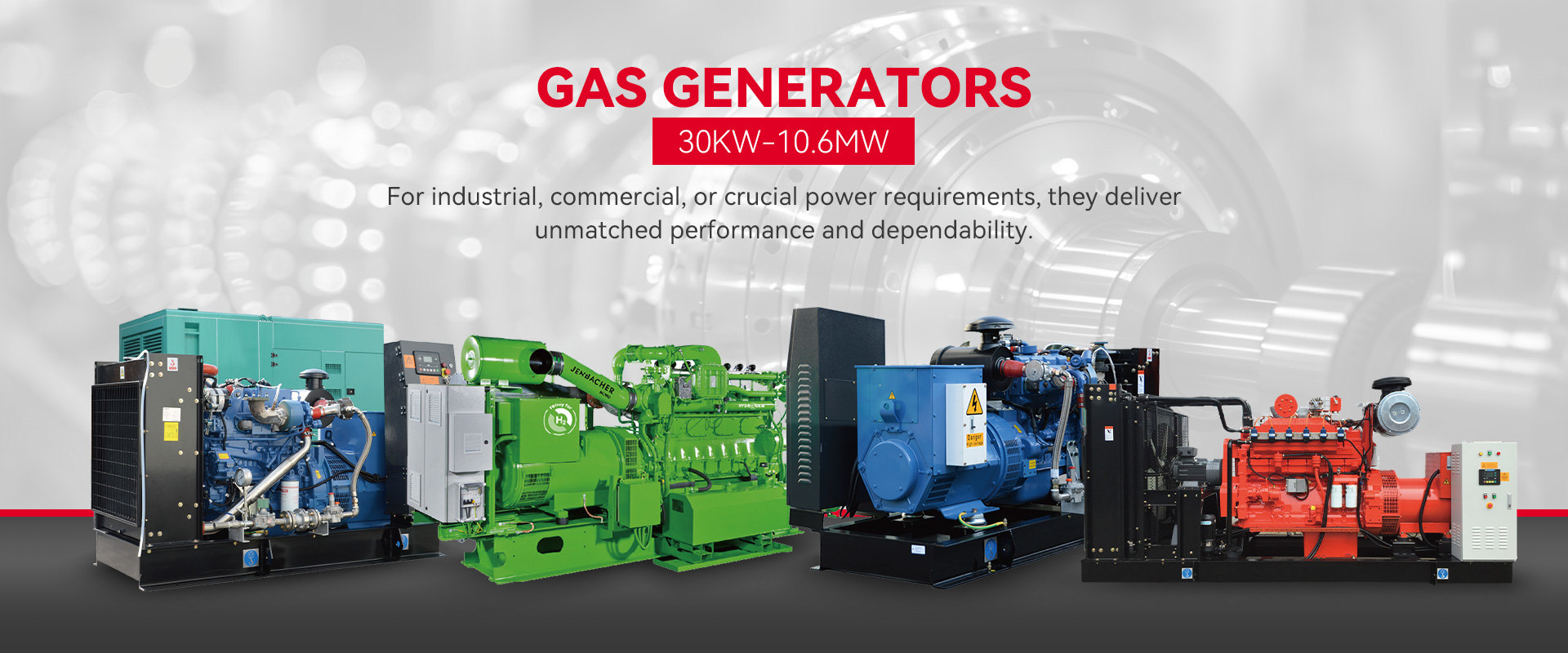In the world of backup power generation, two prominent options stick out: gas main and diesel generators. When the power is out, along with the requirement of it might be critical, selecting the most appropriate generator set will make all the difference. So how does one decide between propane and diesel generators? Each one has its set of benefits and drawbacks, as well as the choice ultimately is determined by your specific needs and circumstances.

In this article, we’ll learn about the distinctive features, advantages, and disadvantages of gas main and heavy duty diesel generators sets, enabling you to create a well-informed decision on what option aligns best with your needs.
Propane Generators
Advantages
Cleaner Emissions: One of the first advantages of natural gas generators is the lower environmental impact. When natural gas burns, it produces fewer harmful emissions, such as particulate matter, nitrogen oxides, and sulphur dioxide, over a diesel genset. As a result gas generators a greener choice for those interested in quality of air and environmental sustainability.
Cost-Effective Fuel: Gas is often less costly than diesel fuel. The price savings could be significant over the long term, particularly if you intend to make use of your generator frequently. Furthermore, the availability of gas is often more stable, reducing price fluctuations.
Less Maintenance: Natural gas generators typically require less maintenance than their diesel counterparts. This is caused by the cleaner-burning nature of gas, which ends up in fewer deposits and soot buildup from the engine, extending the generator’s lifespan.
Quieter Operation: Natural gas generators have quieter operation. This can be a vital consideration in areas and settings where environmental noise must be minimized.
Disadvantages
Limited Fuel Storage: A problem with gas main generators could be the reliance upon a continuing way to obtain natural gas. This could be problematic during extended power outages or even in remote areas where a regular natural gas supply will not be available.
Lower Energy Density: Gas main features a lower energy density in comparison to diesel, meaning you might have to have a larger storage capacity or more frequent refuelling for a similar power output.
Lower Fuel Efficiency: Natural gas generators usually are less fuel-efficient than diesel generators, which can increase operational costs over time.
Lower Portability: Due to the requirement for a separate gas supply, these generators are less portable and versatile than diesel generators.
Diesel Generators
Advantages
High Energy Density: Diesel fuel is recognized for its high energy density. What this means is diesel generators can offer more power within a smaller package, causing them to be suited to applications where space is limited.
Fuel Storage: Diesel generators have the benefit from to be able to store fuel for long periods without degradation. This makes them a dependable decision for backup power in remote locations and through long-term power outages.
Fuel Efficiency: Diesel generators are known for their fuel efficiency, consuming less fuel for the same output as propane generators. This leads to lower operational costs.
Greater Reliability: Diesel engines are normally better and durable, be a catalyst for greater reliability in demanding conditions. They are generally the go-to option for mission-critical applications.
Disadvantages
Emissions and Environmental Impact: Diesel generators emit higher degrees of pollutants, including nitrogen oxides and particulate matter, which could have adverse effects on quality of air and public health. Stricter emissions regulations are already performed to mitigate these issues.
Noise Levels: Diesel generators are generally noisier than gas generators, that may be very important in areas or where environmental noise can be a consideration.
Fuel Availability and expense: Diesel fuel could be more costly and susceptible to price fluctuations. Additionally, storing large quantities of diesel fuel can cause safety and environmental risks.
Maintenance Requirements: Diesel generators typically want more frequent maintenance as a result of soot and carbon buildup in the engine, that may increase the price tag of ownership.
When you ought to Choose Gas Generators?
Environmental Concerns: Should you prioritize environmental sustainability and cleaner emissions, a natural gas generator is the way to go.
Cost benefits: If you’re planning to reduce fuel costs over the long term and have access to a reliable gas main supply, gas generators can be more cost-effective.
Quiet Operation: In residential areas or places where noise levels must be kept as small as possible, natural gas generators include the quieter choice.
Less Frequent Use: If your generator serves as a backup for occasional power outages, the low maintenance requirements of natural gas generators cause them to become an expedient option.
When to Choose Diesel Generators?
High Power Requirements: Prefer a high-power output inside a compact package, diesel generators, making use of their high energy density, include the more sensible choice.
Reliability: For mission-critical applications where reliability is paramount, like data centres or healthcare facilities, diesel generators are often preferred this can robust and sturdy engines.
Remote Locations: In areas with limited entry to a natural gas supply or during long-term power outages, diesel generators with their reliable fuel storage include the better choice.
Frequent Use: If your generator might find frequent use and you also prioritize fuel efficiency, diesel generators may be less expensive in the long run.
Conclusion
The decision between gas main and diesel generators depends on your requirements, budget, and environmental concerns. Both forms of generators have their own positives and negatives, and also the secret is to softly evaluate your requirements priorities before you purchase. Additionally, make sure you understand local regulations and emissions standards that could affect your option.
For additional information about biogas generator explore our new resource
